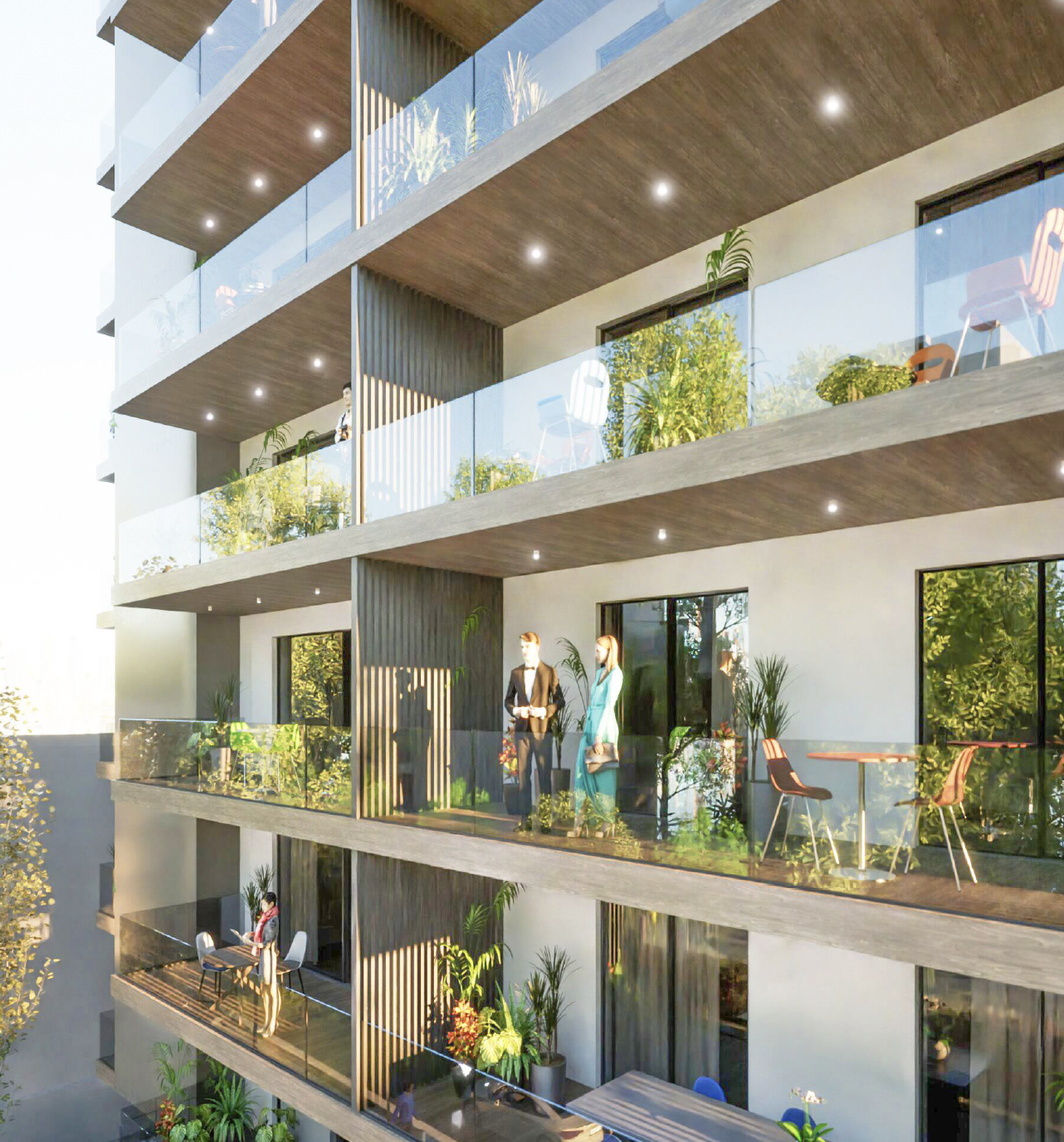Welcome to our blog post on understanding the village house market in the UK. If you have ever dreamed of living in a quaint and peaceful village, then this post is for you. Purchasing a village house can be a wonderful opportunity to escape the hustle and bustle of city life and embrace a more relaxed and idyllic lifestyle. However, before embarking on this journey, there are several factors to consider, such as location, amenities, and budget. In this post, we will guide you through the process of researching and choosing the right village, navigating the legal process, managing the costs of owning a village house, and even renovating and maintaining your new abode. Let’s dive in!
Understanding the Village House Market in the UK
The village house market in the UK is a unique and fascinating aspect of the real estate industry. When looking for a new home, many people are drawn to the charm and tranquility of village life. However, it is important to understand the market dynamics and factors affecting the village house market before making a purchase.
One of the key factors to consider is the location of the village. Some villages are more popular and in higher demand than others. Factors such as proximity to major cities, transportation links, and amenities play a significant role in determining the value of village houses. Houses in villages with good schools, community facilities, and well-preserved historical architecture tend to have higher prices.
Another important consideration is the current state of the village house market. It is essential to research and analyze recent trends and property values in the area. Understanding the average sale prices, the number of properties available, and the average time properties stay on the market can help potential buyers make informed decisions. Real estate websites, local agents, and market reports can provide valuable data for this research.
- Proximity to major cities
- Transportation links
- Amenities and community facilities
- Quality of schools
- Historical architecture
Once you have found a village that meets your criteria and falls within your budget, it is important to navigate the legal process of buying a village house. Engaging a solicitor who specializes in property transactions can help streamline the process and ensure all legal requirements are met. They can assist with property searches, title checks, and handling the necessary paperwork.
Managing the costs of owning a village house is another aspect that potential buyers need to be aware of. While village houses offer a picturesque and peaceful lifestyle, they may require ongoing maintenance and repairs. It is important to budget for these expenses, including property taxes, insurance, and regular upkeep. Renovating and maintaining your village house can be a fulfilling experience, but it is crucial to have a realistic understanding of the potential costs involved.
| Costs of Owning a Village House | Examples |
|---|---|
| Property Taxes | Annual taxes based on property value |
| Insurance | Building and contents insurance |
| Maintenance | Regular repairs, landscaping, and upkeep |
| Renovations | Major renovations or improvements |
In conclusion, understanding the village house market in the UK is crucial for anyone considering purchasing a property in a village. By researching and considering factors such as location, market trends, legal processes, and costs, potential buyers can make informed decisions and find their perfect village house. Whether it’s a charming cottage or a historic property, villages offer a unique and idyllic setting for those seeking a peaceful and close-knit community.
Factors to Consider Before Purchasing a Village House
When it comes to purchasing a village house, there are several important factors that potential buyers should consider. Buying a village house can be a dream come true for many people, as it offers a unique lifestyle and a close-knit community. However, it is crucial to carefully evaluate certain factors before making such a significant investment. By doing thorough research and considering the following factors, buyers can ensure that they make an informed decision and find the perfect village house for their needs.
1. Location: The location of the village house is an essential factor to consider. Buyers should think about their lifestyle preferences and determine whether the village’s location aligns with their needs. Some may prefer a village house close to amenities such as shops, schools, and healthcare facilities, while others may desire a more secluded and peaceful location away from the hustle and bustle of city life.
2. Property Size and Layout: The size and layout of the village house are crucial considerations. Buyers should assess their current and future space requirements to ensure that the property meets their needs. It is important to evaluate the number of bedrooms, bathrooms, and living spaces to determine if they are sufficient for the buyer’s lifestyle and potential growth of their family.
3. Condition of the Property: Before purchasing a village house, it is essential to carefully inspect the property’s condition. Buyers should evaluate the structure, electrical systems, plumbing, and overall maintenance of the house. This assessment will help determine if any renovations or repairs are necessary and factor in the associated costs.
4. Legal Considerations: Navigating the legal process of buying a village house is another critical factor to consider. Buyers must ensure that all necessary legal documents, such as title deeds and planning permissions, are in order. It is advisable to seek the assistance of a qualified solicitor who specializes in property transactions to guide them through the legal aspects of the purchase.
5. Budget: Managing the costs of owning a village house is an important aspect to consider. Purchasing a village house involves various expenses, including the purchase price, taxes, insurance, and ongoing maintenance. Buyers should carefully evaluate their budget and ensure that they can comfortably afford not only the initial purchase but also the long-term costs associated with owning a village house.
6. Community and Amenities: The sense of community and available amenities in the village are factors that can greatly enhance the village house living experience. Buyers should consider the community’s atmosphere, local services, recreational facilities, and proximity to social activities. This aspect plays a significant role in the overall lifestyle and satisfaction of living in a village house.
| Factors to Consider: |
|---|
| Location |
| Property Size and Layout |
| Condition of the Property |
| Legal Considerations |
| Budget |
| Community and Amenities |
In conclusion, purchasing a village house requires careful consideration of various factors. By evaluating the location, property size and layout, condition of the property, legal considerations, budget, and community amenities, buyers can make an informed decision. Taking the time to research and consider these factors will ultimately lead to finding the perfect village house that meets both the buyer’s current needs and long-term aspirations.
Researching and Choosing the Right Village
When it comes to finding the perfect village house, there are several factors that need to be taken into consideration. One of the most important aspects is conducting thorough research on the potential villages you are considering. Researching allows you to gather information about the community, amenities, and accessibility of each village.
Another crucial step in the process is to choose the right village that aligns with your needs and preferences. Consider the following factors before making a decision:
- Location: Determine whether the village is conveniently located near your workplace, schools, or any other important facilities.
- Amenities: Take note of the amenities available in each village such as nearby parks, recreation centers, shopping malls, or any other facilities that you and your family require.
- Transportation: Assess the transportation options available in the area, including public transportation services and proximity to major highways or airports if needed.
Furthermore, it is essential to navigate the legal process involved in buying a village house. This includes understanding the legal requirements, paperwork, and regulations specific to the UK. Seeking professional advice from a solicitor with expertise in property law can help ensure a smooth and secure transaction.
Finding the Perfect Village House for Your Needs
When it comes to finding the perfect village house for your needs, there are several factors to consider. From location and size to amenities and budget, each aspect plays a crucial role in ensuring a successful search. In this blog post, we will explore the key factors you should keep in mind while embarking on your quest for the ideal village house.
First and foremost, location is of utmost importance. Do you prefer a village close to a city or a peaceful countryside retreat? Consider your daily routine, such as commute to work or access to amenities like schools, hospitals, and grocery stores. Research the different villages in your desired area and make a list of the ones that align with your needs and preferences.
Next, think about the size of the village house that suits your lifestyle. Are you looking for a cozy cottage or a spacious family home? Consider the number of bedrooms and bathrooms required, as well as any additional space for a home office, garden, or storage. Make a list of your must-have features and prioritize them accordingly.
When researching and choosing the right village, amenities are another important aspect to consider. Are you looking for a village with parks, community centers, or sports facilities? Would you prefer a village with shops, restaurants, or cafes within walking distance? Determine which amenities are essential for your daily life and ensure that the villages you are considering offer them.
- Location – Consider proximity to city or countryside
- Size – Determine the number of bedrooms, bathrooms, and additional space
- Amenities – Research availability of parks, community centers, shops, etc.
| Location | Size | Amenities |
|---|---|---|
| Consider proximity to city or countryside | Determine the number of bedrooms, bathrooms, and additional space | Research availability of parks, community centers, shops, etc. |
In conclusion, finding the perfect village house for your needs requires careful consideration of various factors. By determining your preferred location, desired size, and essential amenities, you can narrow down your options and focus on villages that align with your lifestyle. Remember to research and visit the villages on your list to get a firsthand experience of the community and surroundings. With thorough research and a clear understanding of your requirements, you are one step closer to finding your dream village house.
Navigating the Legal Process of Buying a Village House
When it comes to buying a village house in the UK, it is important to understand and navigate the legal process involved. This can often be a complex and daunting task for many potential buyers. However, with the right knowledge and guidance, you can successfully navigate the legal process and make your dream of owning a village house a reality.
There are several factors to consider and steps to take when navigating the legal process of buying a village house. First and foremost, it is crucial to engage the services of a qualified and experienced solicitor. A solicitor specializing in property law will be able to guide you through the entire process, ensuring that all legal requirements and obligations are met.
One of the key aspects of the legal process is conducting thorough research on the property and ensuring that it meets all legal requirements. This includes checking the property title, boundaries, and rights of access. It is important to verify that the property is registered with the Land Registry and that there are no outstanding liens or encumbrances on it. A solicitor can assist you in conducting these searches and ensuring that the property is free from any legal issues.
- Engage the services of a qualified and experienced solicitor
- Conduct thorough research on the property
- Verify the property title, boundaries, and rights of access
- Check for any outstanding liens or encumbrances
- Ensure compliance with local planning and building regulations
In addition to researching the property, it is essential to ensure compliance with local planning and building regulations. This includes checking if any planning permissions or building permits are required for renovations or alterations to the property. Your solicitor can assist you in obtaining the necessary permissions and ensuring that all works are carried out in accordance with the law.
The legal process of buying a village house also involves various legal documents and contracts. Your solicitor will review and prepare these documents, including the purchase agreement and any relevant addendums. It is important to carefully review and understand these documents before signing them, as they legally bind you to the terms and conditions of the purchase.
| Important Legal Documents | Description |
|---|---|
| Purchase Agreement | A legally binding contract outlining the terms and conditions of the purchase. |
| Title Deeds | Official documents proving ownership of the property. |
| Mortgage Agreement | A contract between the buyer and the lender outlining the terms of the mortgage loan. |
| Survey Reports | Reports detailing the condition and value of the property. |
Finally, it is important to consider the financial aspects of buying a village house. This includes obtaining a mortgage, if necessary, and ensuring that you have a clear understanding of the costs involved in the transaction. Your solicitor can assist you in calculating and negotiating the purchase price, as well as advising on any additional costs such as stamp duty, legal fees, and survey expenses.
In conclusion, navigating the legal process of buying a village house in the UK requires careful research, the engagement of a qualified solicitor, and a thorough understanding of the legal documents and contracts involved. By following these steps and seeking professional guidance, you can confidently navigate the legal process and make your dream of owning a village house a reality.
Managing the Costs of Owning a Village House
When it comes to owning a village house, managing the costs involved is an important aspect that every homeowner should consider. While living in a peaceful rural setting may seem idyllic, it also comes with its own set of expenses. From maintenance and repairs to taxes and utilities, there are several factors that contribute to the overall cost of owning a village house.
1. Property Taxes: One of the key expenses of owning a village house is property taxes. These taxes vary depending on the location and value of the property. It’s essential to research and understand the property tax rates in the specific village you are considering before making the purchase. Knowing the property tax rates will help you accurately calculate the ongoing costs of owning a village house.
2. Home Insurance: Another crucial aspect to consider is home insurance. It is necessary to protect your investment and safeguard your village house from unforeseen events such as fire, theft, or natural disasters. Home insurance premiums can vary based on factors like the size of the property, its location, and the coverage you choose. It’s important to shop around and compare different insurance providers to find the most suitable and cost-effective policy for your village house.
3. Maintenance and Repairs: Village houses often require regular maintenance and occasional repairs. From routine tasks like cleaning gutters and mowing the lawn to more significant repairs like fixing structural issues or replacing roofing, these expenses can add up over time. It’s advisable to budget for these costs and set aside a contingency fund to cover unexpected repairs or renovations.
4. Utilities and Services: While village living may offer a more affordable lifestyle compared to city living, utility expenses still exist. Monthly bills for water, electricity, heating, and internet services are unavoidable. Additionally, if your village house is not connected to the main sewage system, you may need to consider the costs of septic tank maintenance and waste disposal. Researching the average utility costs in the village you’re interested in can help you estimate these expenses accurately.
5. Community Fees: Some villages have homeowners’ associations or community organizations that require members to pay monthly or annual fees. These fees contribute to the maintenance and management of shared facilities such as parks, recreational areas, or community events. Make sure to inquire about any potential community fees associated with owning a village house and factor them into your budget.
| Expense | Approximate Cost Range |
|---|---|
| Property Taxes | $1,000 – $5,000 per year |
| Home Insurance | $500 – $2,000 per year |
| Maintenance and Repairs | Varies based on specific needs |
| Utilities and Services | $200 – $500 per month |
| Community Fees | $100 – $500 per year |
Managing the costs of owning a village house requires careful planning and budgeting. By considering the factors mentioned above and conducting thorough research, you can ensure that owning a village house remains financially sustainable. With the right financial management, you can fully enjoy the tranquility and charm that comes with living in a peaceful rural setting.
Renovating and Maintaining Your Village House
Renovating and maintaining a village house can be an exciting yet daunting task. Village houses often come with a unique charm and character, but they may also require regular upkeep and renovations to preserve their beauty and functionality. Whether you have just purchased a village house or have been living in one for years, here are some important factors to consider when embarking on the journey of renovating and maintaining your beloved countryside abode.
Research and Planning
The first step in renovating and maintaining your village house is thorough research and careful planning. It is crucial to understand the history and architectural style of your property, as well as any restrictions or limitations imposed by preservation laws. This will help you make informed decisions and ensure that your renovations compliment the original aesthetics of the house. Additionally, create a detailed plan outlining the scope of work, budget, and timeline for each renovation project.
Finding Reliable Professionals
When it comes to renovating and maintaining your village house, it is essential to find reliable professionals who specialize in heritage properties. Look for contractors, architects, and restoration experts who have experience working with historic buildings and can provide references or examples of their previous work. Collaborating with experts who understand the unique challenges of village house renovations will ensure that the process is smooth and successful.
Preservation and Upgrades
When renovating your village house, it is important to strike a balance between preservation and necessary upgrades. While preserving the original features and materials is crucial, certain upgrades may be required to make the house more comfortable and efficient. For instance, you may consider adding insulation, upgrading the electrical system, or improving the plumbing. However, it is essential to consult with professionals and local authorities to ensure that any modifications align with preservation guidelines.
Regular Maintenance
Maintaining a village house is an ongoing process that requires regular care and attention. Regular maintenance tasks include cleaning gutters, checking for leaks or cracks, repainting or repairing exterior walls, inspecting the roof, and maintaining the landscaping. Being proactive in addressing any maintenance issues prevents small problems from turning into major repairs and helps preserve the longevity of your village house.
Cost Management
Renovating and maintaining a village house can be a significant financial undertaking. To effectively manage costs, it is crucial to prioritize projects based on their urgency and impact on the property’s overall value. Obtaining multiple quotes from different professionals and suppliers will enable you to make informed decisions and potentially negotiate better prices. Additionally, be prepared for unexpected expenses by setting aside a contingency budget.
| Pros of Renovating a Village House | Cons of Renovating a Village House |
|---|---|
|
|
In conclusion, renovating and maintaining a village house requires careful research, planning, and collaboration with experienced professionals. While it may involve certain challenges, the end result can be a well-preserved and characterful home that brings joy for generations to come. By balancing preservation with necessary upgrades and staying proactive in maintenance, you can ensure that your village house remains a cherished haven in the tranquil countryside.
Frequently Asked Questions
What factors should I consider before purchasing a village house?
Before purchasing a village house, you should consider factors such as location, amenities, transportation links, local schools and healthcare services, community atmosphere, and potential for future development.
How can I research and choose the right village?
To research and choose the right village, you can start by gathering information online, visiting potential villages, talking to local residents, and considering factors such as proximity to your workplace, recreational activities available, and overall vibe of the community.
What should I consider when finding the perfect village house for my needs?
When finding the perfect village house for your needs, you should consider the size and layout of the house, its condition and potential for renovations, outdoor space, noise levels, accessibility to essential amenities, and whether it meets your long-term plans and goals.
How do I navigate the legal process of buying a village house?
To navigate the legal process of buying a village house, it is recommended to hire a solicitor or conveyancer who specializes in property transactions. They will guide you through the process, handle the necessary legal documents, and ensure that the property is free from any legal complications.
How can I manage the costs of owning a village house?
To manage the costs of owning a village house, you should create a budget that includes mortgage payments, property taxes, insurance, maintenance and repair expenses, and potential renovation costs. It is also advisable to set aside an emergency fund for unexpected expenses.
What should I keep in mind when renovating and maintaining my village house?
When renovating and maintaining your village house, it is important to consider the practicality, cost, and potential return on investment of any renovations. It is also essential to regularly inspect and maintain the property, addressing any repairs or issues promptly, to prevent further damage and deterioration.
What are some common challenges in owning a village house?
Some common challenges in owning a village house include limited availability of services and amenities compared to urban areas, potential isolation, difficulties in finding reliable tradespeople for renovation or maintenance work, and the need to adapt to a different lifestyle and community dynamics.
EDITOR
Categories
Recent Articles

NotteGlobal’s May 2024 Real Estate Report: A Comprehensive Analysis of Turkey’s Market Trends
June 22, 2024

New Immigration Policy in the US: A Major Step for Family Unity
June 21, 2024

Second Largest Investor Group in Greece: Turks
June 14, 2024

Exploring the Hidden Gems of Athens Riviera: A Guide to Luxurious Neighborhoods
June 3, 2024

Economic Stability and Growth in Turkey
May 31, 2024

Turkey’s Housing Sales Statistics for April 2024: A Comprehensive Analysis
May 24, 2024

BNP Paribas Forecasts End-of-Year USD/TRY Rate
May 3, 2024

Significant Updates to the Greece Golden Visa Program in 2024
April 29, 2024

€800,000: New Threshold for Greece’s Golden Visa
February 10, 2024

Golden Visa for Spain
December 27, 2023


